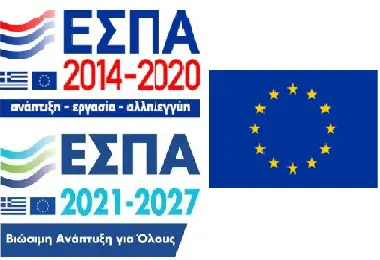UK nationals, who are partners in a durable relationship, duly attested, with the persons referred to in point (b) of paragraph 1 of Article 10 of the Withdrawal Agreement (primary right holders), are covered, where appropriate, by the provisions of paragraphs 2, 3 and 4 of Article 10 of the Withdrawal Agreement and are issued with the residence document referred to in Article 18 (4) of the Agreement in accordance with the conditions set out in the Joint Ministerial Decision No. 4000/1/113-α΄ from 14.10.2020. In particular:
- Article 10(2) of the Withdrawal Agreement: Partners in a durable relationship already residing in the Greek territory
According to Article 10 (2) of the Withdrawal Agreement, persons falling under point (b) of Article 3(2) of Directive 2004/38/EC whose residence was facilitated by Greece in accordance with its national legislation before the end of the transition period in accordance with Article 3(2) of that Directive (Article 3(2) of Greek Presidential Decree 106/2007, as amended) retain their right of residence in Greece in accordance with Part Two of the Withdrawal Agreement, provided that they continue to reside in the State thereafter.
- Article 10(3) of the Withdrawal Agreement: Partners in a durable relationship with pending application
According to Article 10 (3) of the Withdrawal Agreement, paragraph 2 of Article 10 of the Agreement is also applied to persons falling under point (b) of Article 3(2) of Directive 2004/38/EC who have applied for facilitation of entry and residence before the end of the transition period, and whose residence is being facilitated by Greece in accordance with its national legislation thereafter (Articles 2 and 10 of the Joint Ministerial Decision No. 4000/1/113-α΄ from 14.10.2020).
- Article 10(4) of the Withdrawal Agreement: Partners in a durable relationship residing outside Greece before the end of the transition period
According to Article 10(4) of the Withdrawal Agreement, without prejudice to any right to residence which the persons concerned may have in their own right, Greece, in accordance with its national legislation (Article 2 of the Joint Ministerial Decision No. 4000/1/113-α΄ from 14.10.2020) and in accordance with point (b) of Article 3(2) of Directive 2004/38/EC, facilitates entry and residence for the partner with whom the person referred to paragraph 1 of Article 10 has a durable relationship, duly attested, where that partner resided outside Greece before the end of the transition period, provided that the relationship was durable before the end of the transition period and continues at the time the partner seeks residence under Part Two of the Agreement.
This category covers all other long-term ‘durable’ partnerships, both opposite-sex and same-sex relationships. The requirement of durability of the relationship must be assessed in the light of the objective of the Directive to maintain the unity of the family in a broad sense (see Recital 6 to Directive 2004/38/EC).
Such persons would have to be in a durable relationship at the end of the transition period and still be in a durable relationship at the time they seek residence in Greece under the Agreement.
This provision also covers those persons who were in a durable relationship at the end of the transition period and are married to the right holder at the time they seek residence in Greece under the Agreement.
As regards the proof of durability of partnership, it is noted that there are no national rules providing for a minimum amount of time as a criterion for a partnership to be considered as durable. Evidence may be adduced by any appropriate means. The following are indicatively some of the elements that can establish the existence of a duly attested de facto durable relationship:
-proof of being in a close relationship for a long time;
-proof of shared parental responsibility for one or more children and an equal involvement in the exercise of this responsibility;
-proof of having entered into a serious long-term legal or financial commitment together (e.g. a mortgage to buy a home or documentation attesting the establishment of a civil union);
-proof of a common domicile or household;
-where the partners do not live together, proof of the regularity and frequency of their contacts.
It is noted that the competent police Authorities undertake an extensive examination of the personal circumstances of the persons concerned and justify any denial of entry or residence to such persons.




